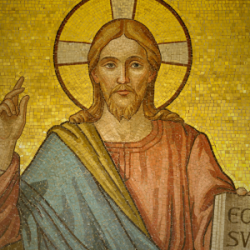Welcome readers! Please subscribe through the button on the right.
(Read this series from the beginning at Part 1 and Part 2.)

Throughout the past few decades in the United States we’ve debated how the institution of marriage should be practiced. When marriage was being justly expanded to include LGBTQ people, whose exclusion from marriage led to many political, economic, and social injustices, many Christians argued against it using the rhetoric of “Biblical marriage.” But when we look at Biblical definitions of marriage we see that the institution of marriage has continually evolved over the centuries when our sacred text was written and compiled. Marriage as an expression of love, as some of us know it today, simply didn’t exist in the Bible. It was most often contractual, rooted in economic, political and social considerations, and rarely included romance or being “in love.” By Jesus’ time, marriage had evolved into something so harmful to women that he solved the problem of marriage by leaving it out of the age of justice to come.
In the gospels we encounter a Jesus, like other Jewish voices at this time, who was deeply concerned about injustice to women and how marriage was being practiced in his society.
What is the lesson for us?
Today, we must ask whether our social institutions are being practiced in life-giving or death-dealing ways. Where those institutions, like marriage, are being practiced harmfully, it’s time for them change. As uncomfortable as those still steeped in patriarchy and heterosexism may find a Jesus who does away with marriage, marriage’s evolution in our society to include same-sex marriages is in perfect harmony with the spirit of our passage this week and the spirit of the Jesus in this passage.
Marriage has a long history of change and social construction.
In Jesus’ worldview, if marriage was going to perpetuate patriarchal dominance and dependence, then it would be better for both men and women for there to be no marriage at all. The “age to come” breaking in on the present, even then, was an age when all oppression would cease, all violence would end, and all injustice, including that enacted through marriage, would be no more. For Jesus, then, patriarchal marriage could not persist. And today we might add that heterosexist marriage and the social injustices it births will also be no more because the social construct of marriage, when practiced in a way that is death dealing, has no place in an age of justice.
Which other institutions and social assumptions are practiced in ways that are death-dealing rather than life-giving?
What social constructs from our time shouldn’t be part of an age of justice?














